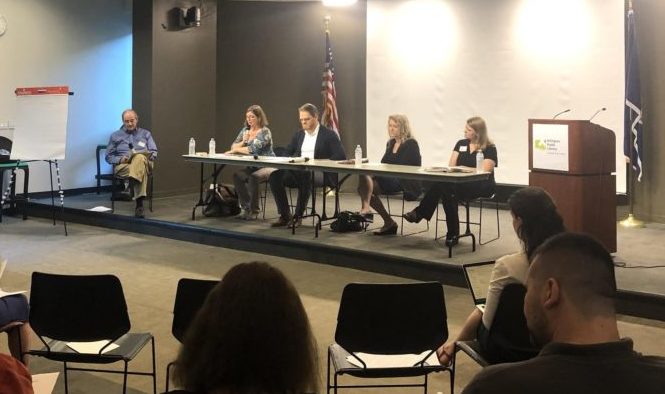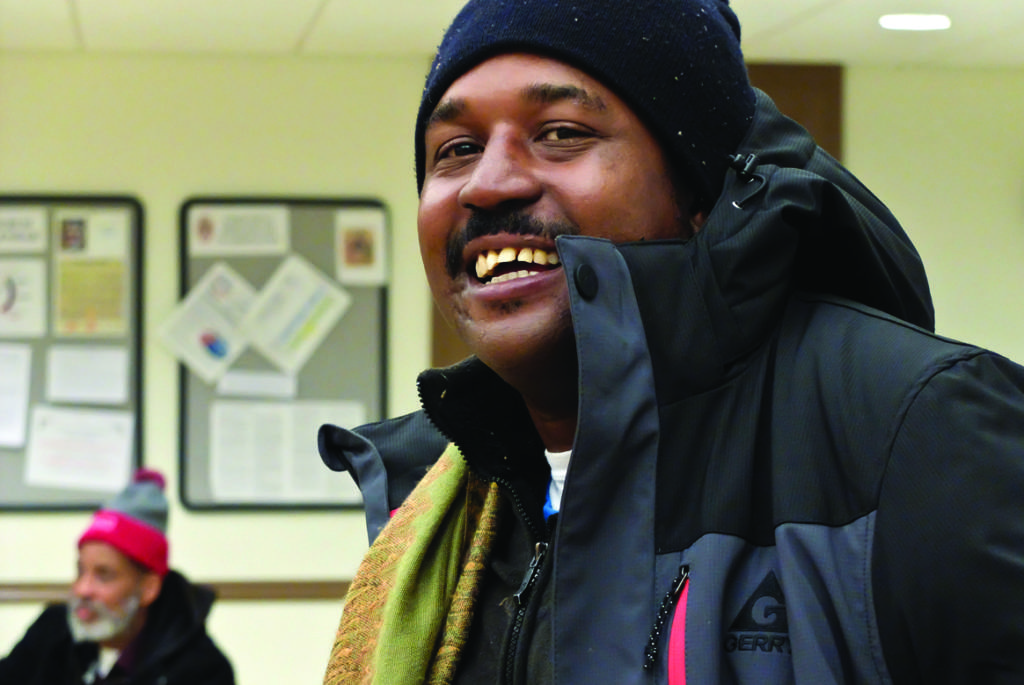Arlington residents gathered at Arlington Central Library the evening of Aug. 15 to discuss a proposed program to divert people from prison and instead place them into treatment.
The public forum – organized by Arlington Mental Health & Disability Alliance – came after officials and Virginia residents asked for more time to review the plan.
Naomi Verdugo, who helped organize the event, said in an email to Street Sense Media that the program, the Behavioral Health Docket, was developed without public comment or input from the public defender.
The docket — created in part by the Commonwealth Attorney’s office and Arlington’s Department of Human Services — was first introduced in July. Arlington County’s Department of Human Services hosted a public meeting on the program later that month after it was introduced, according to ARLnow.
The meeting began with four panelists who were experts in criminal justice and behavioral health.
While attendees at the Aug. 15 gathering agreed a diversion program was ultimately beneficial for individuals who have behavioral or mental health issues, they said the docket should be open to a wider range of people and should not require that an individual plead guilty in court to participate in the program designed to divert them from the traditional legal system.
Dawn Butorac, the chief public defender in Fairfax County and a panelist, said the Arlington docket only includes a “post-plea” option, where an individual would have to plead guilty to participate in the program. Butorac explained that individuals who have mental health issues and are in the criminal justice system sometimes get used to a “certain process,” where they get arrested, they sit in jail until their court date, they plead guilty so that they can get out of jail, and then they “go on with their life.” She added that this is a “cycle” that needs to stop.
“We don’t want to punish people for not being able to hook them up with services previously, or them not having the ability to get services previously because we know that their entire criminal record is as a result of their mental health issues and not being able to get help,” Butorac said.
Brad Haywood, the chief public defender in Arlington County and one of the panelists, said there is no way for the criminal justice system, as it currently exists, to do justice for people who have behavioral or mental health issues. He said officials are starting with a “flawed system.”
“The way we’ve done it in the past, just convicting someone of a serious mental illness or crime and putting them in jail doesn’t work,” Haywood said.
Juliet Hiznay, a special education attorney based in Arlington and one of the panelists, said the proposed behavioral health docket is only for cases that flow through the general district court, which means it would not help people tried in other systems, such as the juvenile domestic relations court.
“For a lot of us that’s also a concern, or for many of us who were interested in seeing a more robust diversion program in Arlington and the City of Falls Church, we’d like to see this being addressed,” Hiznay said.
Hiznay said the program as it stands also excludes developmental disabilities, like autism, in addition to emotional disabilities, like depression and anxiety.
“The way that this docket is defined, the eligibility is extremely narrow,” Hiznay said.
During the question and answer portion of the public forum, Beth Arthur, the sheriff of Arlington County, asked where the resources would come from to support the proposed diversion program. Arthur said that while she is not opposed to the docket, there are currently no additional resources that have been proposed to help run it.

“It’s being done with current staff picking up a little extra here and a little extra there,” Arthur said. “Frankly, our pre-trial program is already bursting at the seams.”
Anita Friedman, the director of Arlington County’s Department of Human Services, said it will take additional resources – perhaps for the sheriff’s office or the public defender’s office – to implement the program. Friedman anticipates needing to bring on additional clinicians for the Department of Human Services and said she is “fully prepared” to request funds from the county manager.
“You can’t just wave a magic wand and say OK, let’s get all the people out of jail and then take that money and then put it into [The Arlington County Community Services Board],” she said. “Eventually, once we have a mental health docket and we are diverting more people from the criminal justice system, hopefully, those resources will be freed up.”







